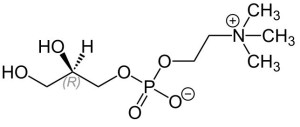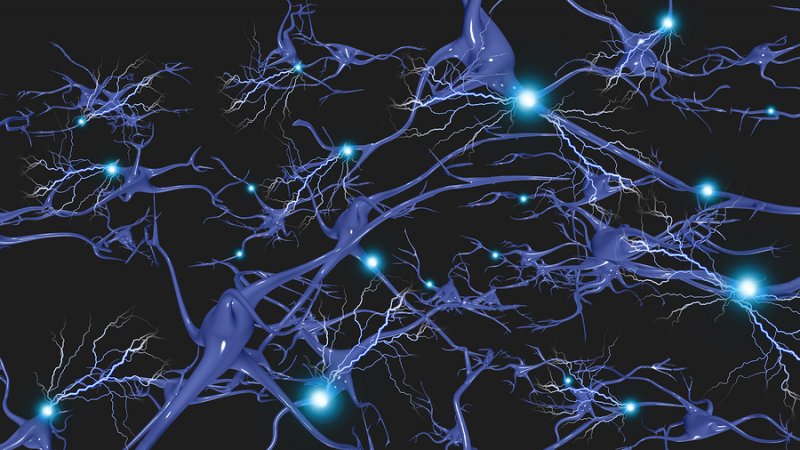Table of Contents
Key Takeaways
- Alpha GPC (L-Alpha Glycerylphosphorylcholine) is a choline source derived from soy or sunflower lecithin and is naturally present in the body.
- It is highly bioavailable and can easily cross the blood-brain barrier, making it a preferred choline source for brain benefits in nootropic users.
- As a precursor to acetylcholine, it enhances brain energy, mood, mental clarity, and memory.
- Alpha GPC supports brain health by boosting acetylcholine levels, aiding brain cell membrane development, and increasing dopamine release.
- Recommended dosage for cognitive benefits ranges from 300 to 1,200 mg per day, and while generally safe, potential side effects include fatigue, headaches, and gastrointestinal issues.
Alpha GPC (L-Alpha Glycerylphosphorylcholine, choline alfoscerate) is a choline source derived from soy or sunflower lecithin. It is also naturally present in small amounts in your body.
Alpha GPC is more bioavailable than other sources of choline for brain benefits. Unlike choline citrate or choline bitartrate, it easily crosses the blood-brain barrier. This makes Alpha GPC a preferred choline source with many experienced nootropic users.
Alpha GPC is a precursor to the essential neurotransmitter acetylcholine.
Alpha GPC helps:
- Brain Energy. Alpha GPC improves mood, and boosts mental energy. The extra choline can increase alertness and clarity of thought.
- Neurotransmitters. Alpha GPC is prized for its ability to improve memory. Its high bioavailability makes it a great source of choline for producing the neurotransmitter acetylcholine.
- Brain Optimization. Alpha GPC boosts the development of new brain cells. And enhances your brain’s ability to repair damaged cell membranes.
What is Alpha GPC?

Alpha GPC is a type of choline that’s produced in small amounts in your body. You can also get it from eating organ meats, dairy and wheat germ.
Choline is considered an essential nutrient because when your body uses it faster than it can produce it, you need supplemental choline either from food or a supplement.
You need choline for the production of the neurotransmitter acetylcholine. And to form phosphatidylcholine (PC), used in building cell membranes.
In fact, choline is so vital to cognition and nerve function that, without it, we couldn’t move, think, sleep or remember anything.
Alpha GPC is used throughout your body. It even helps the production of human growth hormone. Athletes use it for peak performance, and to help build lean muscle mass. It provides more energy for a workout and quicker recovery.[i]
Here we’re talking about how Alpha GPC affects your brain health and chemistry.
Alpha GPC vs. CDP-Choline vs. Choline Bitartrate: What’s the Difference?
Choline is a water-soluble nutrient and its composition is similar to B-vitamins. Alpha GPC, CDP-Choline, Choline Citrate and Choline Bitartrate are all sources of choline.
CDP-Choline (cytidine 5′-diphosphocholine): Is only about 18% choline by weight. Your body naturally synthesizes choline into CDP-Choline (Citicoline). It’s then converted to phosphatidylcholine (PC) which assists cell membranes, and helps create acetylcholine.
 Choline Bitartrate: An economical form of choline, and about 40% choline by weight. So 1 gram of Choline Bitartrate offers 400 mg of actual choline. It does not easily cross the blood-brain barrier. So you won’t experience the same level of nootropic benefits as with Alpha GPC or CDP-Choline.
Choline Bitartrate: An economical form of choline, and about 40% choline by weight. So 1 gram of Choline Bitartrate offers 400 mg of actual choline. It does not easily cross the blood-brain barrier. So you won’t experience the same level of nootropic benefits as with Alpha GPC or CDP-Choline.
Alpha GPC: About 40% choline by weight and easily crosses the blood-brain barrier. Alpha GPC naturally occurs in your brain as a byproduct of phosphatidylcholine (PC). When your brain needs more choline, and the choline floating around in your brain is running low, it breaks down PC from cell membranes. And turns it into Alpha GPC.
Your body and brain loves it when you use Alpha GPC. Because it doesn’t have to cannibalize its own cells to get more choline.
How does Alpha GPC Work in the Brain?
Alpha GPC boosts brain health and function in several ways. But two in particular stand out.
- Alpha GPC boosts acetylcholine, a neurotransmitter tied to memory and overall brain function. Alpha GPC is a precursor to acetylcholine. Improving the efficiency of communications between neurons in your brain. This increase in neural signaling boosts memory, learning, cognitive processing and mental clarity.
In one study, 32 healthy volunteers received either Alpha GPC or a placebo as a pretreatment. Ten days later they were injected with scopolamine to induce amnesia. The researchers found Alpha GPC was able to prevent the impairment of attention and memory normally caused by scopolamine.[ii]
These researchers showed that memory function in young healthy people could be racked up a notch. Simply by taking Alpha GPC as a supplement.
- Alpha GPC directly impacts development of cell membranes in the cerebral cortex. This outer layer of neural tissues or “gray matter” is the information processing center of your brain. It controls intelligence, motor function, organization, personality, planning and touch.[iii]
Published in Clinical Therapeutics, researchers conducted a double-blind, placebo-controlled trial with mild to moderate Alzheimer’s patients. 400 mg capsules were administered 3- times per day for 180 days. The conclusion of this trial showed consistent improvement in dementia patients given Alpha GPC.[iv]
How things go bad if you are low in choline
As we get older, our brain chemistry and energy metabolism changes.
↓ Recall, reaction time and mood diminish
↓ Brain cell membranes degenerate
↓ Acetylcholine levels decline[v]
↓ Nerve growth factor in the brain declines
All of these age-related changes are contributing factors to the neurodegenerative diseases of aging, including Alzheimer’s and dementia.
But even if you’re not concerned with the effects of aging, Alpha GPC can help.
Alpha GPC benefits
There are many benefits of Alpha GPC. Research from hundreds of studies have shown that Alpha GPC may:
- Improve memory and learning ability[vi]
- Restore the bioavailability of acetylcholine[vii]
- Restore and boost nerve growth factor receptors in the brain[viii]
- Increase growth hormones in all age groups[ix]
- Boost cognitive performance and memory in Alzheimer’s patients[x]
Alpha GPC is water-soluble and quickly enters your brain after you take it. Once in your brain, it boosts signal transmission, and protects neurons.
Alpha GPC improves your brain function and learning processes by directly increasing synthesis and secretion of acetylcholine. As your body calls for it.
This form of choline is not a precursor to phosphatidylcholine (PC), but is a metabolite of PC. This means once PC is metabolized and stripped of its fatty acids – all that remains is Alpha GPC.
Instead of scavenging your brain’s own membranes for Alpha GPC, you give it exactly the type of choline its looking for.
How does Alpha GPC feel?
If you have trouble getting started in the morning, try coffee and 400 mg of Alpha GPC. Instead of your usual high sugar, high carbohydrate breakfast.
Alpha GPC can be a great way to boost your energy. Take it 45 minutes before you work out.
Alpha GPC helps with memory, mood, mental performance and energy. Its brain support and ability to fuel the acetylcholine in your brain cells should boost cognition in all age and gender groups.
Alpha GPC Clinical Research
In one study, researchers showed that Alpha GPC had positive effects for increasing human growth hormone.[xi]
Alpha GPC Increases the Release of Dopamine
Another trial demonstrated the increase in the release of dopamine.[xii] This is particularly significant in showing Alpha GPC can help those suffering from dopamine deficiencies. And alleviating the symptoms of diseases like depressive disorders and Parkinson’s Disease.
Alpha GPC Facilitates Learning and Memory
 An ongoing trial demonstrates Alpha GPC improving memory and attention. This research shows Alpha GPC increasing the effectiveness of pairing it with donepezil (acetylcholinesterase inhibitor). Far better than using donepezil on its own.
An ongoing trial demonstrates Alpha GPC improving memory and attention. This research shows Alpha GPC increasing the effectiveness of pairing it with donepezil (acetylcholinesterase inhibitor). Far better than using donepezil on its own.
And in rats, Alpha GPC boosted learning and memory. It increased brain energy mechanisms and decreased age-related structural changes in the brain.[xiii][xiv]
Alpha GPC Relieves Cognitive Decline and Impairment in Alzheimer’s
Thirteen published clinical trials, involving a total of 4,054 Alzheimer’s patients consistently showed Alpha GPC:[xv]
- Improved cognitive function, memory, and attention
- Promoted recovery in stroke patients
- Reversed the symptoms of acute cerebrovascular disease
- Is far more effective than using choline or lecithin in treating disease
Recommended Alpha GPC Dosage
Alpha GPC is about 40% choline by weight. So 1,000 mg of Alpha GPC provides approximately 400 mg of choline.
- Alpha GPC suggested dosage for cognitive benefits is 300 – 1,200 mg per day.
- Athletic training suggested dosage of Alpha GPC is 300 mg first thing in the morning, and another 400 mg dose 15 – 30 minutes before working out.
- Clinical treatment of Alzheimer’s Disease, dementia and other cognitive disorders dosage of up to 1,200 mg per day.
For higher dosages, split the daily Alpha GPC total into 2 or 3 doses per day. For example, 1,200 mg would be taken 400 mg at a time.
Alpha GPC Side Effects
Alpha GPC is produced naturally in your body. So is considered well-tolerated and safe.
Side effects are rare but can include fatigue, headaches, nervousness, nausea, diarrhea and gastrointestinal issues. This is often an indication you have too much choline in your body.
Because Alpha GPC causes an energy boost in many neurohackers, avoid dosing in the evening. Or you may have difficulty getting to sleep.
A very recent study published in 2021 including more than 12 million individuals aged 50 years or older who used Alpha GPC for at least 10 years had a 46% increased chance of stroke. So for short-term use Alpha GPC is safe. But if you need a choline supplement for long-term use you may want to consider switching to CDP-Choline (Citicoline) like I did once I read that study.
Best Type of Alpha GPC Supplement to buy
Because Alpha GPC tends to liquefy at 99-100%, many suppliers offer 50% Alpha GPC powder combined with 50% of a filler like silicon dioxide. Adjust your dosage accordingly.
AlphaSize® and CholineAid® are a Kosher Certified, Halal Certified, USP grade, NDI, GRAS-affirmed, patented forms of Alpha GPC manufactured by Chemi Nutra. Which is the U.S. business unit of parent company Chemi S.p.A., a privately held pharmaceutical and nutraceutical company based in Milan, Italy. The company has cGMP certified manufacturing facilities in Italy and Brazil.
Nootropics Expert Recommendation
Alpha GPC 300 – 1,200 mg per day
 I recommend using Alpha GPC as a nootropic dietary supplement in the short-term.
I recommend using Alpha GPC as a nootropic dietary supplement in the short-term.
Your body does make some Alpha GPC on its own. And from the food you eat. But studies have shown we don’t get an adequate supply of dietary choline from food sources in our modern diet.
Alpha GPC is especially helpful for those suffering from age-related cognitive decline. Studies show it helps stop or reverse brain degeneration like Alzheimer’s Disease, and other cognitive disorders. Particularly in the early to mid-stages of the disease.
I suggest starting with a dose of 400 mg daily. And Alpha GPC is a great compliment to a stack including any nootropic from the racetam-family. Anything that causes an increase in uptake of acetylcholine in your brain.
You need to provide your brain with the choline it is demanding. Or it starts cannibalizing your own brain cells for more acetylcholine. Signs that you’re lacking adequate choline are headaches.
Take Alpha GPC at a ratio of 1:4. For example, 400 mg of Alpha GPC dose to 1,600 mg of a racetam like Piracetam.
How much Alpha GPC you should take will depend on your situation. Bt be aware that CDP-Choline appears to be safer to use long-term. See the clinical study I reference under the section called “Alpha GPC Side Effects” for more.
Age-related cognitive disorders like Alzheimer’s may want to up the dose to 1,200 mg of Alpha GPC per day.








Join The Discussion - 240 comments
Sam
August 7, 2025
Hey,
Was wondering how high the stroke risk taking Alpha GPC is? Is it safe for a young adult.
David Tomen
August 8, 2025
Sam, as far as we know Alpha GPC should be safe to use short term. Studies show the problem is when used long-term.
illy
September 9, 2025
If i may add something to the case. Any supplement or food containing substances similiar to choline e.g. carnitine or cetaine are being degrarded by gut bacteria to trimethylamine (TMA) which then in turn gets oxidized in the liver to Trimethylamine-Oxide (TMAO). TMAO is regarded as the main contributer to Atherosclerosis, which leads to a higher stroke risk. So anything containing these substances leads to a higher stroke risk (red meat etc.).
Funfact: DMB dimethylbutanole which is contained in oliveoil inhibits this reaction, which is why olive oil is regarded as healthy for your hearth.
David Tomen
September 9, 2025
That is absolutely NOT true. There is zero clinical evidence that using Alpha GPC as a nootropic supplement increases TMAO.
Illy
September 13, 2025
well as I mentioned before any substance which has the same molecular structure as choline will undergo the same degredation pathway.
What is your reasoning behind your statement? Why do think choline derivates would otherwise increase the stroke risk?
Choline itself already does, how would a choline derivate act different?
Illy
September 14, 2025
There you go
https://www.mdpi.com/2072-6643/12/8/2220#:~:text=Choline%20serves%20as%20a%20dietary,gut%20microbes%20to%20form%20TMA.
It even contains alpha GPC…
David Tomen
September 15, 2025
I am not sure why you are so insistent on finding a problem with this. But I suggest pulling back a bit and read that trial you pointed to and carefully.
They are talking about Choline Bitartrate which could possibly be a problem with TMAO. And Phosphatidylcholine with does not cause a problem. Alpha GPC is produced from Phosphatidylcholine naturally in your brain. And in places they mention both in the same sentence.
The author concludes his study with this sentence, “Recommendations proposing to restrict consumption of choline as a TMAO-generating nutrient require careful consideration and balanced reporting of dietary factors contributing to TMAO production. The development of individualized dietary recommendations based on gut microbiota composition may be a promising means to reduce risk of cardiovascular disease.”
We need choline for a ton of reasons including producing one of four major neurotransmitters. Without adequate levels of acetylcholine in your brain or body you cannot move, think, focus, concentrate or remember anything.
I will not respond to another attempt to spread disinformation about Alpha GPC or any other supplement which I have researched and reported on. Folk are coming from all over the world to this website looking for help. We will not scare them off with non-sensible debates about things that are not supported by science.
illy
September 18, 2025
Im sorry, you misunderstood. I take alpha-gpc myslef daily. I dont think or say that there is a real high stroke risk or whatever from alpha gpc. I just wanted to explain why you can argue that indeed it has the same degredation path way as you would expect from any carnitin (or choline) like molecule and that is why People draw the conlcusion that is has the Potential (even if its basically vanishing) to lead to a higher stroke risk.
And in no way did i want to spread misinformation, if im wrong im happy to be corrected. I initially thought I would shine some light on the issue, but whatever.
David Tomen
September 20, 2025
No worries. But there was a study published in 2021 including more than 12 million individuals aged 50 years or older who used Alpha GPC for at least 10 years had a 46% increased chance of stroke. So, short term use of Alpha GPC appears to be safe. I used it daily for many years. But as soon as I saw that study I stopped using Alpha GPC and switched to CDP-Choline which I have been using twice per day since.
Tainer
July 15, 2025
Hi David, isn’t silicon dioxide harmful when we ingest alpha GPC?
David Tomen
July 15, 2025
Tainer, silicon dioxide when used as an additive in any supplement can cause mitochondrial dysfunction and harm glial cells in your brain. That’s why it is best to choose a pure supplement. In other words, the only ingredient in the capsule should be the ingredient you want to consume. And nothing else. Sometimes it is not possible to find that pure of a supplement. But more and more manufacturers are getting the message that we do not want toxins in our supplements.
Tainer
July 16, 2025
And where can I get a pure alpha gcp supplement, either in capsules or powder form without silicon filler?
David Tomen
July 18, 2025
Tainer, right here: https://geni.us/ZgSb (Amazon)
RISVIN
June 25, 2025
Hello, 2 Eggs, 100mg Rhodiola and 200 mg L-theanine with 2-3 pods of nespresso coffee at morning. And then for a second wing at 02:00PM 600mg (2×300 mg) Alpha-GPC and 800mg piracetam. Is this a safe regimen?
David Tomen
June 30, 2025
It’s safe but you will get more benefit using Piracetam if you added 500 mg ALCAR each time you used Alpha GPC.